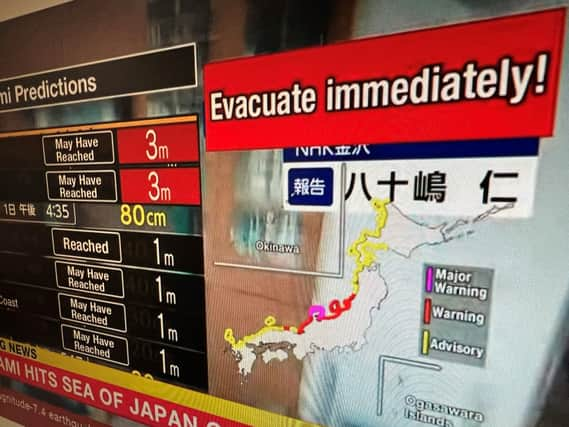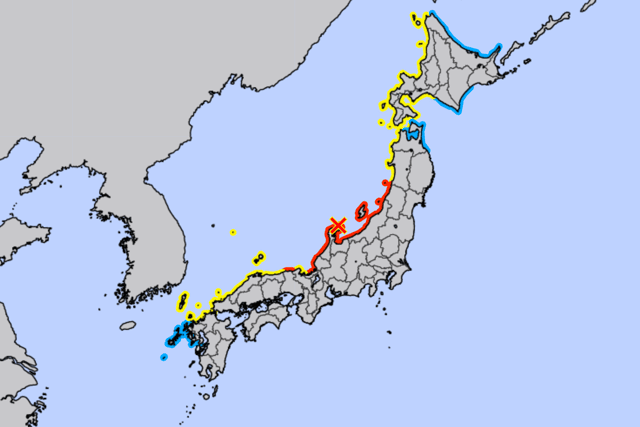Tsunami warnings downgraded continue in Japan after 7.5 magnitude earthquake strikes on New Year's Day


Japan has downgraded a series of tsunami alerts in the Ishikawa region from Monday morning in response to a sequence of earthquakes, however, there is still a threat to life from collapsed buildings, fires ignited and mudslide advice now in force..The Japan Meteorological Agency reported a series of quakes off the coast of Ishikawa and nearby prefectures, with one registering a preliminary magnitude of 7.6 shortly after 4 pm. A major tsunami warning was issued for Ishikawa, accompanied by lower-level tsunami warnings or advisories for the broader western coast of Honshu, the main island, and Hokkaido, the northernmost main island.
Japanese public broadcaster NHK TV cautioned of potential water torrents reaching up to 16.5 feet (5 meters), urging residents to promptly seek higher ground or the top of nearby structures. NHK indicated that recurring tsunami waves were possible, with warnings persisting for hours beyond the initial alert. Numerous aftershocks further rattled the region.
Advertisement
Hide AdAdvertisement
Hide AdGovernment spokesperson Yoshimasa Hayashi stressed the urgency for coastal residents to swiftly move away from the approaching tsunami, stating, “Every minute counts. Please evacuate to a safe area immediately" as a 10-foot (3-meter) tsunami was expected to impact Niigata and other western coastal prefectures, confirmed reports noted waves reaching certain coastal areas. Several residences suffered damage from the quakes, with individuals reported trapped inside. A fire erupted in Wajima city, Ishikawa prefecture, leaving over 30,000 households without electricity.


While no confirmed reports of casualties or injuries had emerged, the situation remained unclear, according to Mr Hayashi. Japan's military joined rescue efforts.
Media footage depicted people running through streets, a residential neighbourhood ablaze with red smoke, and large cracks in the pavement. Bullet trains were halted, highway sections closed, and water pipes burst. Some mobile phone services in the region faced disruptions. A nationally broadcast news conference by the Meteorological Agency warned of the potential for more major quakes in the region over the next week, particularly in the coming days. Landslides and house collapses were identified as ongoing risks.
Tsunami warnings extended to parts of North Korea and Russia. Russian officials issued alerts for the island of Sakhalin, while South Korea's weather agency urged residents in certain eastern coastal towns to monitor sea level changes.
Advertisement
Hide AdAdvertisement
Hide AdPrime Minister Fumio Kishida announced the establishment of a special emergency centre to swiftly gather and relay quake and tsunami information, reiterating calls for immediate evacuation in affected areas.
Comment Guidelines
National World encourages reader discussion on our stories. User feedback, insights and back-and-forth exchanges add a rich layer of context to reporting. Please review our Community Guidelines before commenting.
